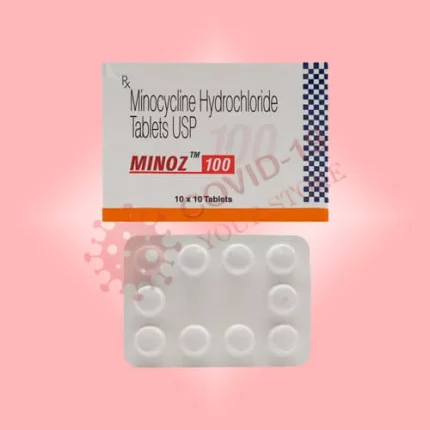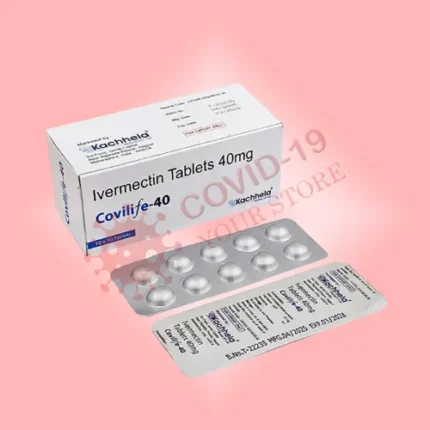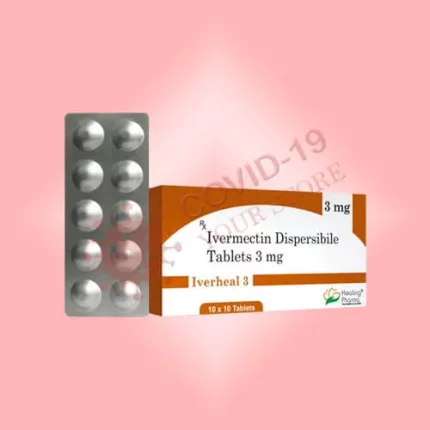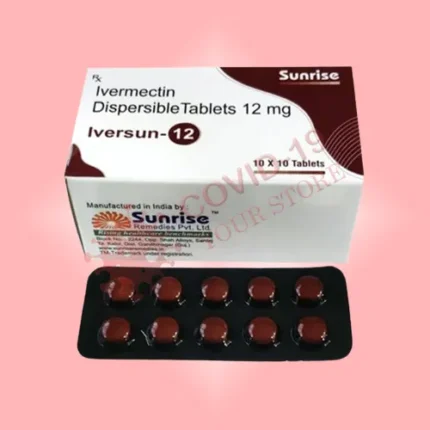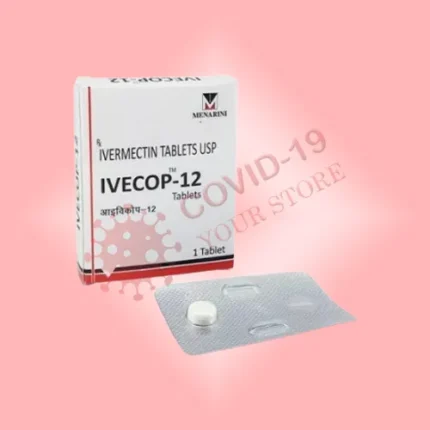What is Ivermectin 12 mg?
Ivermectin 12 mg is an antiparasitic medication that belongs to the class of drugs known as macrolide antibiotics. It is used primarily to treat a range of parasitic infections in both humans and animals. Ivermectin works by targeting the nervous system of parasites, causing paralysis and death of the organisms. In humans, it is commonly prescribed for conditions such as river blindness (onchocerciasis), strongyloidiasis, scabies, and intestinal worms.
Ivermectin 12 mg tablets are a higher dosage form typically used for the treatment of more severe or widespread infections. It is effective against a variety of parasites, including roundworms, threadworms, and other parasitic organisms that can affect the skin, eyes, and internal organs.
How Does Ivermectin 12 mg Work?
Ivermectin works by interfering with the nerve and muscle function of parasites. It binds to specific channels in the parasite’s nervous system, increasing the influx of chloride ions into the cells. This leads to paralysis and death of the parasite. Ivermectin is particularly effective against parasites that are sensitive to its action, disrupting their ability to maintain normal physiological functions.
The drug works selectively on parasitic cells, making it safe for humans when used as directed. However, it is not effective against bacterial or viral infections, and it should only be used for parasitic conditions.
Benefits of Ivermectin 12 mg
- Treatment of Parasitic Infections:
Ivermectin 12 mg is widely used to treat parasitic infections like river blindness (onchocerciasis), strongyloidiasis, and scabies. It is also effective against intestinal worms, head lice, and filariasis. - Effective for Skin Conditions:
Ivermectin is known for its ability to treat skin conditions caused by parasites, such as scabies and rosacea. It works by eliminating the microscopic mites that cause these conditions, leading to a significant reduction in symptoms. - Broad-Spectrum Activity:
The drug is effective against a wide range of parasitic organisms, making it a versatile treatment option. It is often used in combination with other medications to treat infections that involve multiple types of parasites. - Prevention of Disease Transmission:
Ivermectin is used in mass drug administration programs to prevent the transmission of certain parasitic diseases in endemic areas. This is particularly important in regions affected by diseases like river blindness and lymphatic filariasis.
How to Take Ivermectin 12 mg
- Dosage:
The dosage of Ivermectin 12 mg depends on the type of infection being treated. For conditions like strongyloidiasis, a single dose of 12 mg is typically prescribed. For river blindness, multiple doses may be required, depending on the severity of the infection and the patient’s response. - Administration:
Ivermectin 12 mg tablets should be taken with a full glass of water, typically on an empty stomach to ensure better absorption. It is important to follow the specific instructions provided by your healthcare provider regarding the timing and frequency of doses. - Missed Dose:
If you miss a dose of Ivermectin, take it as soon as you remember. However, if it’s almost time for your next dose, skip the missed dose and continue with your regular dosing schedule. Do not take two doses at once to make up for a missed dose. - Consistency:
To achieve the best results, it is essential to take Ivermectin as prescribed by your healthcare provider. Do not stop the medication prematurely, even if you start feeling better, as this could allow the infection to return.
Who Makes Ivermectin 12 mg?
Ivermectin 12 mg is manufactured by various pharmaceutical companies around the world. Some of the major manufacturers include Merck & Co., which originally developed the drug, as well as generic pharmaceutical companies. Ivermectin is available under various brand names, and the generic version is widely available at affordable prices.
Is Ivermectin 12 mg Safe for Humans?
When taken as directed, Ivermectin 12 mg is generally safe for humans. It has been extensively studied and used for decades in the treatment of parasitic infections. However, like all medications, it can cause side effects in some individuals.
Before using Ivermectin, it is important to inform your healthcare provider if you have any pre-existing conditions, such as liver disease, kidney problems, or allergies to medications. Ivermectin is not recommended for use during pregnancy unless absolutely necessary, and it should be avoided in breastfeeding women unless advised by a doctor.
Side Effects of Ivermectin 12 mg
While Ivermectin is generally well-tolerated, some individuals may experience side effects. Common side effects include:
- Headache
- Dizziness
- Nausea or vomiting
- Fatigue
- Skin rash
- Abdominal pain or diarrhea
In rare cases, more severe side effects may occur, including:
- Severe allergic reactions (e.g., swelling of the face, lips, or throat)
- Eye irritation or vision changes
- Liver problems, including jaundice (yellowing of the skin or eyes)
If you experience any of these serious side effects, seek immediate medical attention.
Disclaimer
This content is intended for informational purposes only and should not be considered as medical advice. Always consult with your healthcare provider before starting or discontinuing any medication, including Ivermectin 12 mg. Follow your doctor’s instructions regarding dosage and use, and report any side effects or concerns promptly.




